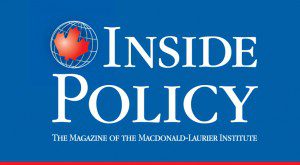 What principles and priorities should guide the government’s National Housing Strategy? Jane Londerville and Sean Speer offer several recommendations based on their recent co-authored MLI study.
What principles and priorities should guide the government’s National Housing Strategy? Jane Londerville and Sean Speer offer several recommendations based on their recent co-authored MLI study.
By Jane Londerville and Sean Speer, Nov. 20, 2017
The Trudeau government is set to release its National Housing Strategy in the coming days. It comes in light of new evidence that housing affordability has hit its worst levels in a quarter century. Many will be watching to see if Ottawa’s new plan can help to restore the prospect of affordable and responsible homeownership for aspiring, young families. Count us among them.
We’re typically leery of national strategies. They tend to be glossy documents full of superficialities at best, and federal intrusions into provincial and local jurisdictions at worst.
This one can be different though. The federal government touches on housing and homeownership in various ways. Yet its housing policy framework has tended to be incoherent. A National Housing Strategy can address this coherence problem and start to make federal housing policy look less like the Bride of Frankenstein and more like the product of intelligent design. In so doing, the Trudeau government can make progress on its vision of inclusive growth.
It’s well-known that ongoing housing affordability challenges are putting homeownership out of reach for young families and first-time home buyers in major centres such as Toronto and Vancouver. This is nothing less than a crisis. It comes with various economic and social costs for individuals, families, and society as a whole.
What principles and priorities should guide the government’s strategy?
Most of the resulting policy discussion has been focused at the provincial and local levels. This is sensible. These are mostly localized matters and the underlying policy issues – such as land-use regulations and development rules and fees – are outside of federal control.
But it’s wrong to assume that there’s no federal role in housing and homeownership. Ottawa influences the housing market through a wide range of policies such as monetary policy, mortgage insurance, financial regulations, tax and transfer policies, and social housing spending. Tax-related measures represent more than $6 billion annually alone.
Yet little attention is paid to how these various federal policies interact or fit together. They usually don’t. One example: we’ve seen successive cases of mortgage rule tightening while Ottawa has concurrently expanded tax incentives for first-time home buyers. It often seems like the left hand and right hand aren’t speaking.
Here’s where a National Housing Strategy can be useful. Building a housing agenda from the bottom up can ensure that there are clear objectives and the right set of policies to match.
What principles and priorities should guide the government’s strategy? A new study by the Macdonald-Laurier Institute sets out several recommendations in this regard. Let’s highlight three:
The first is the strategy must be rooted in a clear understanding of the difference between “affordable housing” and “housing affordability.” The former is about subsidized social housing which is roughly 6 percent of the market. The latter is about the overall affordability of market-based housing which covers the rest. The Trudeau government tends to conflate the two in its messaging. It’s notable for instance that the consultation materials for the National Strategy Housing largely neglected market-based homeownership. The strategy itself shouldn’t.
Homeownership is associated with a raft of economic and social benefits – ranging from better health to more stable families to greater civic engagement.
The second is that Ottawa should ignore calls for policy neutrality with regards to homeownership. This would be a mistake. A wide body of research shows that homeownership is associated with a raft of economic and social benefits – ranging from better health to more stable families to greater civic engagement. There are, of course, smart and dumb policies to promote and support homeownership as we’ve witnessed in the United States. We should be in favour of smart ones and against bad ones rather than against them altogether.
The third is that Ottawa should rethink the current mix of mortgage insurance and tax policies to promote and support homeownership. One big idea would be to enact a matching funds mechanism in Tax-Free Savings Accounts (similar to Registered Education Savings Plans or Registered Disability Savings Plans) to support higher down payments and greater equity build-up. These funds would accumulate on a tax-free basis until they were large enough to provide a 20-percent down payment on a home. Such a policy could ultimately lead to greater home equity and put less pressure on public mortgage insurance.
What connects these recommendations? The common thread is our view that a pro-homeownership agenda can support the Trudeau government’s commitment to inclusive growth. The OECD defines inclusive growth as “economic growth that creates opportunity for all segments of the population and distributes the dividends of increased prosperity, both in monetary and non-monetary terms, fairly across society.” Focusing on homeownership, asset development, and “an emotional sense of prosperity” (as Co-operatives UK, an organization responsible for representing housing co-ops, has put it) can help the federal government take concrete steps to advance this vision of inclusivity and opportunity. The pending National Housing Strategy can be an important step in this direction. We’ll be watching.
Jane Londerville and Sean Speer are co-authors of the recent Macdonald-Laurier Institute study, “A Home to Call our Own: A Federal Strategy for Affordable and Responsible Homeownership.”




